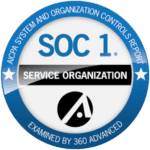Appendix:
- Introduction
- What is TMS Software?
- Key Benefits of TMS Software for Brokerages
- How TMS Software Works for Brokerages
- Comparing TMS Features for Brokerages
- Conclusion
Introduction
In the fast-paced logistics industry, brokerages play a crucial role in connecting shippers and carriers to ensure timely and efficient deliveries. To manage these complex operations, many brokerages rely on TMS Software for Brokerages. TMS, or Transportation Management Software, helps automate and optimize various tasks, from load matching to route planning. This blog will explore the importance of TMS software in brokerage operations, how it enhances efficiency, and its key features.
What is TMS Software?
Transportation Management Software (TMS) is a digital tool designed to streamline the planning, execution, and tracking of logistics operations. For brokerages, a TMS offers functionality that allows them to coordinate shipments, manage relationships with carriers, optimize routes, and track deliveries in real-time.
A robust TMS helps brokerages reduce operational costs, improve customer service, and boost overall productivity.
Key Benefits of TMS Software for Brokerages
Using TMS software provides brokerages with a competitive edge by simplifying logistics processes, improving client satisfaction, and enhancing data visibility.
1. Enhanced Operational Efficiency
TMS software automates repetitive tasks such as load matching and rate negotiation, allowing brokerage teams to focus on higher-value activities. By automating these processes, TMS reduces the time spent on administrative tasks, ultimately increasing productivity.
2. Real-Time Tracking and Visibility
With TMS software, brokerages gain real-time insights into shipment status, providing a transparent view of each load’s location. This feature is essential for managing customer expectations and addressing any delays promptly.
3. Improved Carrier Selection
TMS software enables brokerages to store detailed carrier profiles and track performance metrics. This allows brokerages to select the best carriers based on factors like cost, reliability, and performance history, improving overall service quality.
4. Data-Driven Decision Making
With the use of transportation management solutions, TMS software provides data analytics and reporting capabilities, allowing brokerages to make informed decisions that reduce costs and optimize performance.
|
Benefit |
Description |
|
Enhanced Efficiency |
Automates tasks, increasing productivity |
|
Real-Time Tracking |
Provides live shipment tracking for transparency |
|
Improved Carrier Selection |
Helps select reliable carriers based on performance |
|
Data-Driven Decisions |
Supports better decision-making with analytics and reporting |
How TMS Software Works for Brokerages
TMS software integrates with various parts of a brokerage’s operations, offering a seamless way to manage logistics tasks from a centralized platform.
1. Load Matching and Dispatching
TMS software allows brokerages to match loads with available carriers based on factors such as capacity, location, and cost. Once a carrier is selected, TMS automates dispatching, sending out load information and tracking details.
2. Route Optimization
TMS software optimizes routes based on factors such as fuel costs, traffic, and delivery windows. This ensures that each shipment is delivered in the most efficient and cost-effective manner, saving time and resources.
3. Real-Time Communication
TMS software provides a communication platform for brokerages, shippers, and carriers to stay in touch. This real-time communication enables brokerages to make quick adjustments in response to delays or changes.
4. Reporting and Analytics
TMS software offers reporting tools that provide insights into key performance indicators (KPIs) like on-time delivery rates, carrier costs, and shipment volume. These insights allow brokerages to improve operations continuously.
Comparing TMS Features for Brokerages
When selecting TMS software, brokerages should consider features that align with their unique needs.
|
Feature |
Importance for Brokerages |
|
Load Matching |
Matches loads with carriers quickly |
|
Route Optimization |
Ensures cost-effective routing |
|
Real-Time Tracking |
Provides visibility for shippers and end customers |
|
Reporting & Analytics |
Enables data-driven decision making |
|
Carrier Management |
Tracks carrier performance for improved service quality |
How TMS Software for Brokerages supports logistics by streamlining key tasks, improving decision-making, and enhancing customer satisfaction. By investing in a TMS, brokerages can optimize routes, automate load matching, and maintain transparency in the supply chain. For brokerages looking to stay competitive, adopting a robust transportation management solution can make all the difference.
Explore our full Transportation Management Software Checklist to see how brokerages can better evaluate system features and integrations.
Frequently Asked Questions
What is a TMS in freight brokerage?
A Transportation Management System (TMS) is a software platform that helps freight brokers manage shipments, track loads, optimize routes, communicate with carriers, and automate repetitive tasks to improve efficiency and profitability.
How does TMS software benefit freight brokerages?
TMS software streamlines load management, reduces manual processes, provides real-time tracking, and integrates with carrier systems. For brokerages, this leads to faster quoting, improved margin tracking, and stronger customer relationships.
Can small brokerages benefit from a TMS?
Absolutely. Even small brokerages gain efficiency from using a TMS by automating communication, reducing errors, and gaining insights from reporting tools that help grow their client base and carrier network.
Does a TMS integrate with load boards?
Yes, most modern TMS platforms integrate with major load boards like DAT and Truckstop, enabling brokers to post loads, match with carriers, and manage the full lifecycle of a shipment within one platform.
Is TMS software customizable for brokerage workflows?
Yes. Many TMS solutions offer configurable workflows, custom fields, and integration with CRM, accounting, and rating tools, allowing brokerages to tailor the system to their specific needs.




